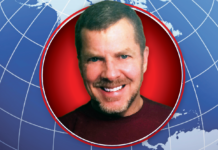By Will Carlin
At the 2014 Windy City Open in Chicago, the best player in the world was seeded number three. After winning the 2013 British Open in May and the NetSuite Open in October, Ramy Ashour had not lost in forty-five straight matches, winning nine tour titles along the way.
But the chronic hamstring injury that he first hurt in 2010 and would become as much a part of his legacy as his transcendent playing style, had again reared its head shortly after the NetSuite. Ashour missed a number of tournaments in a row, including the 2014 Tournament of Champions in January, and he saw his number one ranking slip down two spots.
Almost as amazing as his trademark backhand crosscourt volley nick was Ramy’s ability to return to the court after a long layoff to play top-level squash and even win titles with virtually no run-up. At the Windy City, his fellow players were on guard when they saw his name in the draw, and the University Club of Chicago patrons were nearly salivating with anticipation.
One of those spectators was Malcolm Willstrop, a squash coaching legend, who once wrote that “Ramy Ashour is something else—his movement is better than anyone in the game, and allied to his unique racket skills and vision, he lights up the sport. Not only that, but his modesty and engaging smile make him a rare commodity.”
Willstrop was there to see his son, former world No. 1, James, play Ramy in the quarterfinals. Despite being one of Ashour’s main rivals and a fan favorite, James was dispatched in four games to the crowd’s (perhaps even Malcolm’s) delight. That set up the semifinals and one of the tournament’s most scintillating match-ups where Ramy took on world No. 1, Nick Matthew.
It did not disappoint. Ashour moved like he had never been injured, showed off many of his trademark reflex volleys and took out Matthew in a surprisingly long four-game match—surprising because Ashour only lost five total points in the last two games.
World No. 2, Gregory Gaultier, whom Ramy had beaten in the British Open finals just nine months earlier, was waiting in the finals. Gaultier had taken out Mohammed ElShorbagy 3-1 in the semis, and he looked very strong doing so. With both players playing so well, squash aficionados optimistically recalled their 2010 Hong Kong Open final when their rivalry perhaps reached its pinnacle with Ramy’s you-can’t-get-closer-than-that win 10-12, 11-9, 11-9, 9-11, 11-9.
Expectations, in other words, were high.
Unhappily, they were dashed two-thirds into the first game. After an action-packed start, Ashour suddenly looked disheartened. Though the cause wasn’t immediately apparent, Ramy had injured the dreaded hamstring again, and Gaultier cruised to a somber 11-7, 11-3, 11-4 win.
I was the emcee that night, and because the match was so short, the two women finalists, who had gone to change after their final, were not yet ready. The trophy ceremony was delayed while word was sent that their presence was—urgently—requested. I wanted to explain the situation to Ramy and Greg, but though I found Gaultier easily enough, I couldn’t find Ashour.
At the University Club, the squash court is set up in the club’s main ballroom, and the men’s locker room is two flights up. Though I would be cutting close the timing, I decided to run up to see if Ramy had already retreated to the showers. As I looped around the court toward the crowded doorway, I was passing the ballroom’s kitchen, when I had a sudden thought. I put out my hand to push open one of the double-swing doors when I was stopped by a waiter.
“You don’t want to go in there,” he said. “He’s really upset.”
I thanked him, but cautiously opened the door and walked in. Ramy didn’t look up as he sat slumped on the floor, his back against a giant steel refrigerator and his head hanging down. I walked over and kneeled down.
“It’s so unfair,” he said, lifting his head. His dark lashes were moist around bloodshot eyes, and his right cheek showed the salty track of a tear. “I hate my body.”
“I’m so sorry,” I said, knowing as soon as I said them that the words were insufficient.
My earbud came alive with the television director’s slight stressed voice asking where the heck I was. I didn’t have a microphone, so I couldn’t respond, and perhaps that was okay.
“The awards are about to start,” I said to Ramy, “but you don’t have to come out. I’ll make it okay.”
“No, I’ll come out.”
“Do you want to say something?” I asked. “If you don’t, I’ll make it look like part of the plan.”
He took a deep breath. “Can I decide when I’m out there?”
“Of course,” I said. “I’ll look at you and just give me a small signal if you want to speak. Otherwise, I’ll cover you.” He nodded slowly; when his head reached its nadir, it stayed there. He squeezed his eyes shut in obvious torment.
A few minutes later, after I interviewed the women’s runner-up and champion, I announced Ashour’s name. There was a long pause. A very long pause. Then, the kitchen doors burst open, and Ramy came out with a huge smile on his face. As he slowly jogged around the outside of the court, the crowd went crazy.
On court, he gave me a nod, and I gave him the mic. When he spoke, his tone was as upbeat as if he had just won. He not only praised his friend Gaultier while apologizing for not performing better, but he also got everyone to laugh.
His heart breaking inside, Ramy made everyone else feel better.



